I was recently asked by one of my readers what is my opinion about spirulina and I decided that it’s a good subject to be detailed.
Most probably you heard about spirulina but what is the spirulina?
Let’s discover together more details about spirulina and health benefits for our bodies.
Table of Contents
What Is Spirulina?
Spirulina is a greenish-bluish micro alga, one of the oldest forms of life on earth that have helped produce oxygen for millions of years so that other life forms can emerge.
Characterised as a “super aliment”, spirulina is so rich in nutrients that a water-based diet and this alga can support the smooth functioning of the body.
Once harvested, it is transformed into a thick paste, then it is left to harden, then crushed, and finally to be marketed in the form of capsules or powder.
I consume the spirulina as powder, mix it with other greens or just as it is and add water with lemon or some fresh pressed juice.
Composition And Dosage
Even if some claim the unpleasant taste, spirulina encompasses 60-70% pure protein, that is, more than it can contain beef or chicken, which means that it has all eight essential amino acids (isoleucine, leucine, lysine, methionine, phenylalanine, threonine, tryptophan and valine) that can maintain an optimal state of health.
I recommend you my article ‘Best Vegetable Protein Sources’ to discover more about proteins.
The next terms will sound like a chemistry lesson, but I cannot describe in other terms.
Among the other valuable nutrients it contains are: gamma-linoleic acid, which reduces LDL cholesterol (low density lipoprotein) and prevents the development of cardiovascular disease, phycocyanin, a substance that inhibits the formation of colon cancer, five times higher beta-carotene than carrots and 40 times higher than spinach, arachidonic acid, vitamin B12, iron, chlorophyll and nucleic acid RNA and DNA.
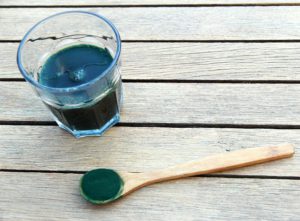
In addition to vitamin B12, spirulina also contains vitamins D, E, K, calcium, chromium, copper, iodine, magnesium, phosphorus, potassium, selenium and zinc.
They can be taken before or after a meal, ideally after a meal, at least 30 minutes after.
At first, small doses are recommended because of the strong fish taste and because not everyone can tolerate the strong smell.
Action
Spirulina has a high linoleic acid content that helps in the formation of prostaglandins, with a role in regulating blood pressure, preventing and improving various inflammatory processes;
Enzymes contained in spirulina accentuate healing of trauma and skin metabolism;
chlorophyll has a regenerative effect; certain substances contained in algae, such as polio, diminish the harmful effects of radiation on cells, accelerate the growth of bone marrow cells and increase the immunity of the body, have an anti-cancer effect, antioxidant and delay the aging phenomenon.
Therapeutic indications
Spirulina is the ideal supplement for Lacto-vegetarian diets, easily assimilate proteins providing all the essential amino acid needs.
Administered half an hour before a meal reduces appetite, helping to reduce body weight, combat obesity.
At the same time, spirulina strengthens, increases resistance and stimulates the body’s defense system, slows the growth and multiplication of bacteria, has a bactericidal effect, detoxifies, accelerates the natural process of purification and elimination of toxins.
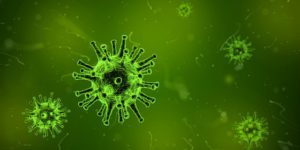
Spirulina lowers the serum level of total lipids and cholesterol, lowers blood glucose in diabetics and provides protection against the harmful effects of sunlight.
Through the intake of plant fibers, spirulina stimulates digestion, increases intestinal dynamics, contributes to the development of intestinal flora (Lactobacillus) and thereby to the regulation of digestion.
Precautions And Contraindications
Even if it’s a supra aliment, there are some contraindications.
A good advice is not to exceed the recommended doses and start treatment gradually to avoid undesirable effects of sudden detoxification (gastrointestinal disorders, headache).
People who suffer from hyperthyroidism (resulting in excess of iodine in the body) should use algae tablets only at the recommendation of the physician and only under close supervision.
Do not administer spirulina to pregnant women and children under 3 years of age.
Because of the high protein content, people who suffer from phenylketonuria are not being administered.
Method of administration: 1-2 tablets (500 mg) are given daily or as directed by your doctor.
Spirulina – In cosmetics
Spirulina has an excellent penetration effect on the skin, which has the effect of soothing, regenerating, refreshing, smoothing the wrinkles, reducing the dilated pores, eliminating the spots and irritations of the skin; periodic use brings youthfulness and freshness to the skin.
Spirulina creams are indicated for wind and cold skin – apply to areas exposed before going out.
The cream is not given in a very thick layer but must be allowed to progressively enter the skin so that the active principles of spirulina can exert its protective effect.
Also, spirulina creams are recommended for the prematurely aged skin.
Treatment is done 2-4 times a week after having a warm shower (it should not last long) to remove the dead cells so that spirulina can work.
The spirulina cream elasticizes the skin and speeds up regeneration processes at this level.
Benefits
1. Rich in protein – besides the fact that spirulina contains between 50% and 70% of proteins, it contains all the essential amino acids;
2. Rich in vitamins and minerals – the wide range of vitamins and minerals contained in spirulina make it a super aliment. This alga is among one of the best sources of iodine, phosphorus, magnesium, calcium, potassium, copper, iron, magnesium and vitamins B1, B2, B3, B5, B12;
3. An antidote against poisoning – according to some studies, spirulina is able to treat arsenic poisoning. Because of the large amount of chlorophyll, which can remove toxins from the blood, improving liver function;
4. Fights against allergies – millions of people have problems with allergies caused by dust, pollen, animal hair and much more. Spirulina consumption improves specific symptoms of allergic rhinitis such as sneezing, nasal congestion, and itching of the nose;
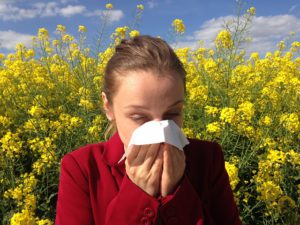
5. Regulates blood pressure – when regular consumption of spirulina is combined with a balanced diet and movement, the blood pressure level is improved in about 6 weeks;
6. Control cholesterol – use of 8 grams of spirulina per day helps to lower “bad cholesterol,” also being correlated with a lower risk of cardiovascular disease;
7. Stimulates immunity – due to continuous nutrients such as polysaccharides, spirulina is able to boost immune system activity. Likewise, phycocyanin, the blue antioxidant, increases the number of white cells in the body, which have an essential role in the immune system, producing antibodies that protect the body from bacteria;
8. Improves memory – Studies suggest that spirulina improves both cognitive abilities and mental health.
9. Protects the brain – spirulina can protect the brain against degenerative diseases such as Alzheimer’s or Parkinson’s. Due to its neuroprotective effect, it can reduce inflammation and eliminate free radicals;
10. Powerful antioxidant – being very rich in antioxidants, spirulina protects the whole body against oxidative effects;
11. Anti-inflammatory properties – phycocyanin, the main active ingredient in spirulina, eliminates free radicals and prevents the production of inflammatory molecules. Also, phycocyanin is the one that gives the spirulina the unique green-blue color;
12. Effective against anemia – Spirulina supplements help produce red blood cells, their deficiency being the primary cause of anemia;
13. Beneficial loss – due to high protein content, spirulina consumption inhibits hunger. It is also rich in fiber that helps the digestive system to function normally;
14. Maintains skin health – due to the nutrients and amino acids in the composition, spirulina gives the skin a shiny and healthy appearance. Spirulina inhibits free radicals, which are responsible for skin damage;
15. Maintains bone health – Because of the high calcium content, spirulina is beneficial to bone health.
Conclusion
There are many benefits introducing spirulina in your diet:
– the most concentrated source of vitamin B12
– the most concentrated natural form of nutrients
– is 58 times more rich in iron than a portion of raw spinach
– contains all essential amino acids
– 65% protein
– rich in chlorophyll

– rich in beta-carotene
– contains phytochemicals
– contains an essential fatty acid (GLA) that makes our hair and skin shiny
– anti-inflammatory function
– protects the body against invasion of germs
– grows the microbial flora, so beneficial to protect our body
– symptoms of anemia, poisoning can be removed with it
– can prevent cancer and viral infections
– bacterial infections or parasites are easier to treat if given and supplemented with spirulina at the same time
– a good help in removing stress and depression
Feel free to give a LIKE, SHARE and COMMENT to this article. I would be glad to hear your thoughts.
Stay healthy!

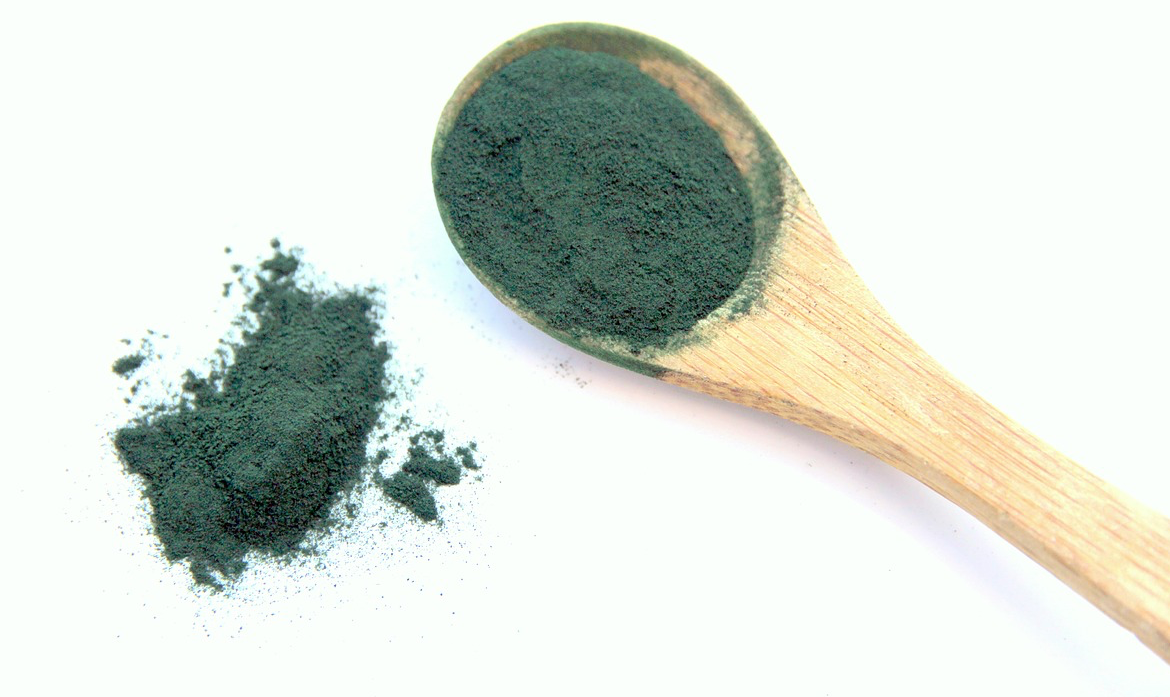

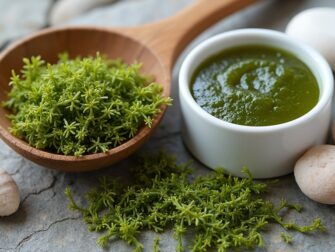
Very interesting. I learned a lot here. Although I was aware of Spirulina before, I thought it’s all about the chlorophyl. Didn’t know that it has such a high percentage of proteins. What do you take it for? And have you seen any change since?
I’m glad you find it helpful, Felix. I take it with a mix of other greens when I do not have time in the morning to prepare my green juice.
It contains vitamins and nutrients. In this time of the year, it’s good to take it to strengthen your immune system.
The changes which I can see are the energy levels which are high, and it gives the satiation feeling.
Stay healthy!